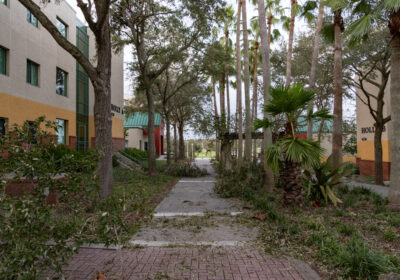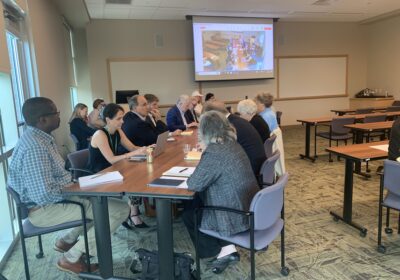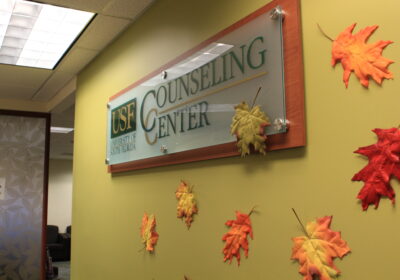USF researcher disputes Alzheimers as a disease
USF has been committed to finding a cure for Alzheimer’s disease, with millions ofdollars given or donated to the USF Health Byrd Alzheimer’s Institute in the past year alone.
However, one researcher is convinced that money might be going to a cure that doesn’t exist.
A recently published study in the Journal of Alzheimer’s Disease by Ming Chen, an associate professor in the molecular pharmacology and physiology department,suggests that Alzheimer’s in the elderly has no cure because it is not a disease, but rathera misnomer for a naturalcondition caused primarilyby age.
“Over 20 years, I studied Alzheimer’s,” he said. “Then after the first 10 years, Istarted to realize thatsomething might be wrong that turned things upside-down.”
Chen said thatneurotransmission, or themovement of signals sent through the brain, isregulated by calcium. While Chen expected calciumlevels to decrease in a person with Alzheimer’s because of thesymptoms of impaired brain function, he found, as did the medical community at large, that calcium levels increased.
“From there, I realizedsomething must befundamentally wrong,” he said. “This is due to advanced aging plus risk factor.”
The study lists inactivelifestyles and unhealthy food as risk factors that increase a person’s chances of getting Alzheimer’s. Whilepeople can lessen their risk with exercise and a healthy diet, in the long run, he saidpeople won’t be able to escape Alzheimer’s any more than they can escape death.
Chen said Alzheimer’s is better categorized in terms of senile dementia and presenile dementia – dementia found in younger persons — which he said is a disease. The causes of presenile dementia, three mutant genes, were not seen in senile dementia patients.
Chen likened the difference between senile and presenile dementia to the difference between hearing loss found in a member of the elderly and hearing loss found in a child.
“This is why we havegeriatric medicine,” he said. “For example, all peopleget hearing loss. That is due to aging, we all knowthat. However, if in young peoplethere’s lost hearing, then that must be disease, then that must be caused by a gene mutation or a virus or bacteria.”
Chen said the controversial viewpoint isolated him from the medical community, as few scientists agree with him.
“There are a lot of(scientists) in USF, but I won’t name any of them to avoidcontroversy,” he said. “Ourbiggest challenge, is gettinggrant funding. To get a grant, you have to make a proposal and the proposal is reviewed by scientists in a field – a peer review. That’s the problem. My views aredifferent than the majority of the scientific community.”
Dave Morgan, CEO of the USF Health Byrd Alzheimer’s Institute, said Chen’s argument has a few problems.
“Two names: George Burns and Betty White,” he said. “So if it’s normal aging, they should have it. They’re both in their 90s, (and) they don’t have it. So this is the problem with his argument. If it was from old age, everyone would have it.”
Chen, however, said things are not so simple.
“It’s like a radio in the car,” he said. “You have an old radio, that radio will eventually die because of aging – not only radio, but the whole car will die. Not every (car) engine will overrun the radio’s lifespan. There’s always some cars dead with bad engine, withbad radio, but other carsdead with working radio. Alzheimer’s will not affect everybody, nomatter how long we live.”
Huntington Potter,director of the Florida Alzheimer’s Disease Research Center, said he agreed with Chen in regards to age itself being the No. 1 risk factor for developing Alzheimer’s.
But Alzheimer’s is adisease, he said, and all formsof disease are curable.
“I think a disease should be defined by any physiological process that is detrimental to health or happiness,” he said. “So for any disease we seek scientists to prevent it or halt it or reverse its effects. Andpossibly all three.”
Potter said the medicalcommunity should focus on understanding the effects of aging on the brain as to figure out the pathology, or cause, of the disease, and in doing so, “find a way to halt” Alzheimer’s.
“We know quite clearly that it is very common for you to get Alzheimer’s in your 80s, but it turns out if you reach the age of 100, your risks go down,” Morgan said. “So that definitely proves that Alzheimer’s is not a function of aging.”






